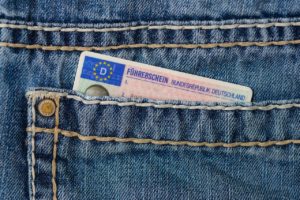The following information was shared to us by someone who went through this process.
What documents do you need
- Proof of ownership – Proof of purchase / Hire purchase agreement
- Dealers Invoice
- Original Vehicle registration documents – Proof of registration in your name
- Current vehicle insurance documentation
- EU Certificate of conformity (Konformitäts-bescheinigung or EWG – Übereinstimmungsbescheinigung)
- Certificate of exhaust emissions (AU-Bescheinigung) – vehicles older than 3 years
- Tax clearance certificate (Unbedenklichkeitsbescheinigung). This is to confirm that the vehicle has not previously been registered in Germany
- Drainage certificate for the shipping agent (you will need several copies)
- Packing list
- Documents from the shipping agents for customs. The customs agents will open your container and check your declaration
What else do you need
- A Shipping agent
- You will need a conform container
The process
- Get all the necessary documents together
- Arrange a shipping agent
- Have your vehicle VeriDotted –
- Prepare the vehicle (no fuel, fuel line and battery disconnected etc)
- Deregister the vehicle in SA
- Ship the vehicle
- Collect your vehicle at customs / arrange vehicle delivery to TUV. You will not be allowed to drive your vehicle before all the paperwork is done and you have a TUV certificate
- Customs in Germany will issue you with a Unbedenklichkeitsbescheinigung to enable you to get your vehicle licensed, registered and insured here in Germany.
- Vehicle is modified to German standards e.g changes to the headlights
- Register your vehicle in Germany – Licensing
Registering your vehicle
You will need the following documentation
- Proof of identification
- Proof of your registration in Germany (home address)
- Original registration documents
- Tax clearance certificate (Unbedenklichkeitsbescheinigung)
- Proof of duties paid or exemption (Zollrechtliche Bescheinigung)
- Original Certificate of Conformity
- Proof of insurance
- Road tax form
- TUV (Technischer Überwachungsverein) certificate – Testcentre for Roadworthiness
- Proof of the original purchase contract
Costs
- As a rule, you have to pay the following:
- Duty Fees – 10% import duty
- Import VAT – 19%
You can get an exemption from the duty and VAT if you are establishing a new residence in Germany and have given up your residence in a non-EU country. The vehicle must be registered in your personal name (sole owner) for at least 6 months and be used by you personally. You will have to declare the vehicle as Übersiedlungsgut
- Shipping Fees
- Customs fees
Pitfalls
- In Germany, you drive on the right lane and the driver sits on the left
- Your vehicle will have to go through TUV, there are some adjustments that need to be done for example the angle of the headlights
Information on the internet
- Your Europe – Car registration documents and formalities
- Zoll (Customs) Transferring residence
- KBA (Kraffahrt-Bundesampt) Central Vehicle Register
Related content

Moving to Germany
Moving to a new country can be both exciting and overwhelming at the same time. The thought of starting a new chapter in your life

Road Rules
Driving on German roads is very well regulated and if you don’t adhere to the rules you will get penalty points against your name

Driving and Driver’s licences
If you are only visiting, you need an International driver permit which you can apply for at the AA in South Africa If you stay



You must be logged in to post a comment.